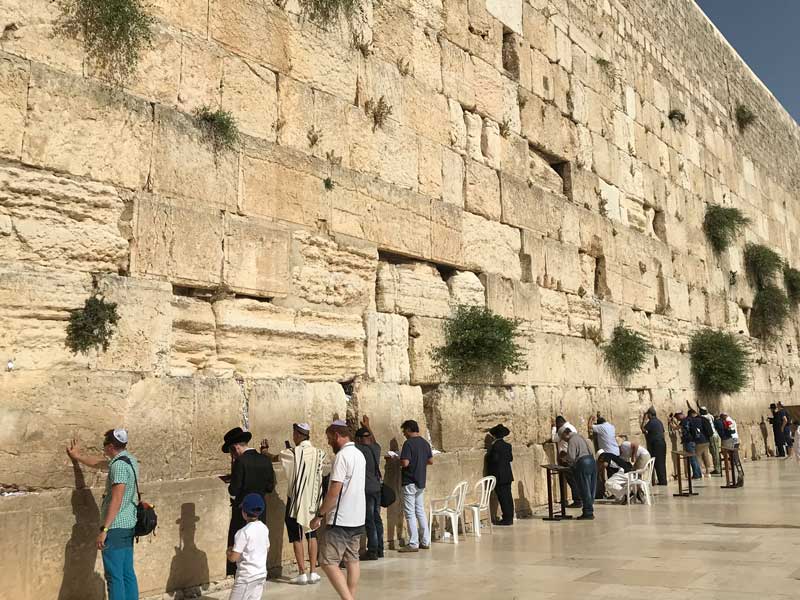In a 1990 poll, conducted by the British Royal National Theatre, ‘Waiting for Godot’, by Irish playwright Samuel Beckett, was voted the “most significant English language play of the 20th century”.
Its story line involves the interactions of Vladimir (Didi) and Estragon (Gogo), two rather dishevelled characters, who reunite, and then converse with three others, as they await the arrival of someone named Godot. Godot never comes.
I have to confess that the play has never really captured my heart. However, as we visited, and observed the prayers that were being offered at the wailing wall in Jerusalem, I couldn’t help but think of it. Like many of us, I was deeply moved by the sadness of this anguished vigil.
The Western wall, a new discovery for me, was not actually a part of the destroyed second Temple. It is merely a section of the retaining wall that surrounded it. Its importance for those in the Jewish faith is that it represents the nearest point remaining to the Holy of Holies wherein the presence of God appeared. Day after day, year after year, Jews, and honoured visitors like us, gather there to pray and to seek the blessing of the God of Israel.
Beckett’s play has pretty much defied explanation, despite its attempted appropriation by a huge variety of commentators. The writer, himself, always maintained that his only intention was to explore symbiosis – and to do so in a way he hoped would be interesting and entertaining. Beckett did not describe himself as a Christian, yet Christianity has heavily shaped his imagery. Their opening dialogue about the dying thief; the boy who mentions that he and his brother look after Godot’s ‘sheep and goats’, etc, etc. Biblical allusions, in fact, abound.
It was for this reason that I couldn’t help but think of Vladimir and Gogo’s repeated refrain, ‘We’re waiting for Godot’, and their doing so at that bare tree, as I observed this forlorn gathering at the bare blocks of that ancient wall. I couldn’t help but long for our Jewish brothers and sisters, that they could know their prayers have already been answered; that God’s favour has already been granted; that their longed for Messiah has already come; that the deliverance they hope he will bring, has already been won at another bare tree on Calvary’s hill.
In Act II of Beckett’s famous work, leaves have suddenly appeared on the tree of waiting. Perhaps, in meeting our brothers and sisters from Palestine and Israel, who so courageously model what it is to be made one in the body of Christ, we find an equal sign of new hope? Perhaps, in their stories, we glimpse the new shoots of what the Messiah, who has indeed come, can now do – no matter how long or seemingly unanswered has been our waiting?


